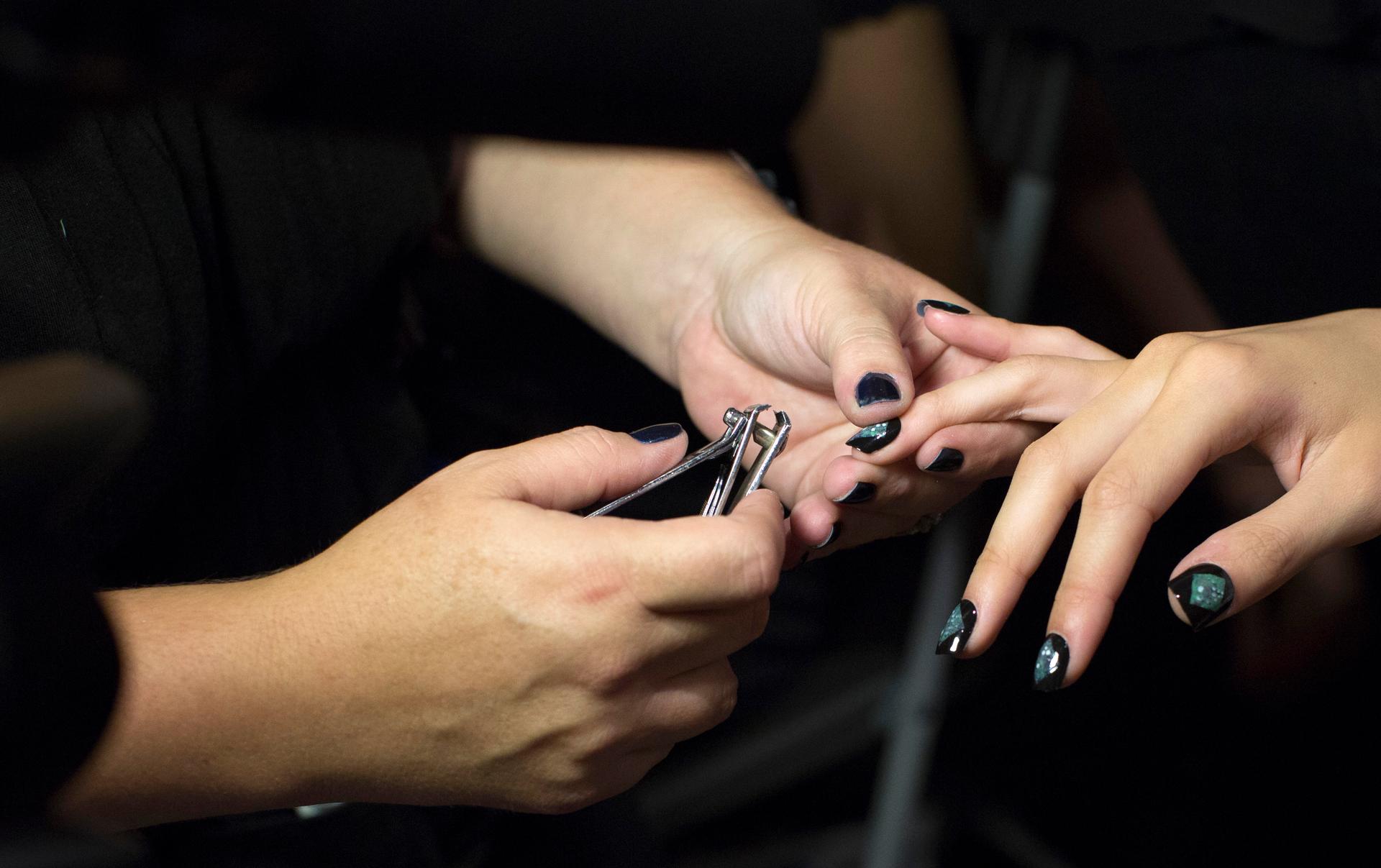A model has her nails done backstage before the presentation of the Nicole Miller Spring/Summer 2013 collection during New York Fashion Week on September 7, 2012.
Reporter Sarah Maslin Nir was getting a pedicure at a 24-hour nail salon a while back when she started chatting with her manicurist.
"I said it's crazy that this is a 24-hour salon," Maslin Nir recalled. "Who does the night shift?" The woman laughed — she did.
Maslin Nir soon learned that the manicurist works 24 hours a day, six days a week, and the encounter sparked a New York Times investigation into the nail salon business in the New York City area.
The first part of Maslin Nir's report, published on Thursday, reveals a world of abuse by salon owners. "Workers are forced to pay a fee — it can be up to $200 or more — for their jobs," she explains. They are charged that amount in exchange for learning the new skill.
And the low cost of manicure and pedicures in New York City, which is half the national average, according to Maslin Nir, is built on low payments for workers. Many of the workers are abused, sometimes physically, in addition to being underpaid.
"Here they are sitting in salons holding hands with wealthy women … and they return back to homes, one bedroom, split among six to 12 people," she says.
Yet many of the workers are immigrants — some undocumented — and Maslin Nir says they're happy to have even such a low-paying job.
Meanwhile, she says, the New York State Department of Labor is doing "very little" to put an end to the abuses. She says only a couple of inspectors speak the languages the workers speak, and only a few salons among the city's thousands are inspected each year.
Maslin Nir's story in the New York Times was presented in Chinese, Korean and Spanish, in part in the hopes that these women would read the stories and realize what's happening. So far, though, she hasn't heard from any of them.
"They're hard at work," Maslin Nir says. "They don't have time to look up from the hands in front of them."
In 2010, WGBH News reporter Phillip Martin investigated the link between nail salons and human trafficking rings. The story was part of a four-part series on human trafficking In New England. Listen to the entire Murrow-award winning series here.
